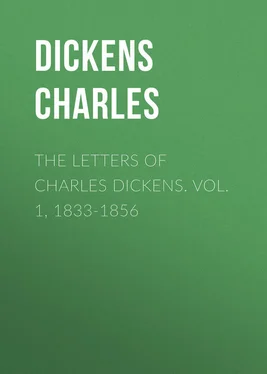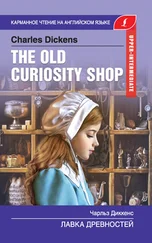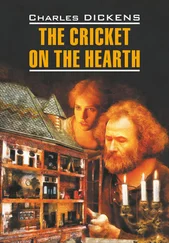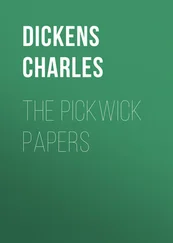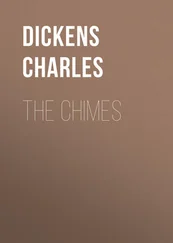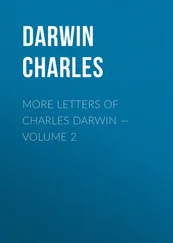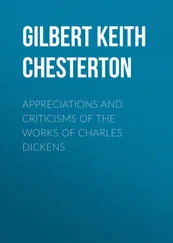Чарльз Диккенс - The Letters of Charles Dickens. Vol. 1, 1833-1856
Здесь есть возможность читать онлайн «Чарльз Диккенс - The Letters of Charles Dickens. Vol. 1, 1833-1856» — ознакомительный отрывок электронной книги совершенно бесплатно, а после прочтения отрывка купить полную версию. В некоторых случаях можно слушать аудио, скачать через торрент в формате fb2 и присутствует краткое содержание. Жанр: foreign_antique, foreign_prose, на английском языке. Описание произведения, (предисловие) а так же отзывы посетителей доступны на портале библиотеки ЛибКат.
- Название:The Letters of Charles Dickens. Vol. 1, 1833-1856
- Автор:
- Жанр:
- Год:неизвестен
- ISBN:нет данных
- Рейтинг книги:5 / 5. Голосов: 1
-
Избранное:Добавить в избранное
- Отзывы:
-
Ваша оценка:
- 100
- 1
- 2
- 3
- 4
- 5
The Letters of Charles Dickens. Vol. 1, 1833-1856: краткое содержание, описание и аннотация
Предлагаем к чтению аннотацию, описание, краткое содержание или предисловие (зависит от того, что написал сам автор книги «The Letters of Charles Dickens. Vol. 1, 1833-1856»). Если вы не нашли необходимую информацию о книге — напишите в комментариях, мы постараемся отыскать её.
The Letters of Charles Dickens. Vol. 1, 1833-1856 — читать онлайн ознакомительный отрывок
Ниже представлен текст книги, разбитый по страницам. Система сохранения места последней прочитанной страницы, позволяет с удобством читать онлайн бесплатно книгу «The Letters of Charles Dickens. Vol. 1, 1833-1856», без необходимости каждый раз заново искать на чём Вы остановились. Поставьте закладку, и сможете в любой момент перейти на страницу, на которой закончили чтение.
Интервал:
Закладка:
Charles Dickens
The Letters of Charles Dickens / Vol. 1, 1833-1856
PREFACE
We intend this Collection of Letters to be a Supplement to the "Life of Charles Dickens," by John Forster. That work, perfect and exhaustive as a biography, is only incomplete as regards correspondence; the scheme of the book having made it impossible to include in its space any letters, or hardly any, besides those addressed to Mr. Forster. As no man ever expressed himself more in his letters than Charles Dickens, we believe that in publishing this careful selection from his general correspondence we shall be supplying a want which has been universally felt.
Our request for the loan of letters was so promptly and fully responded to, that we have been provided with more than sufficient material for our work. By arranging the letters in chronological order, we find that they very frequently explain themselves and form a narrative of the events of each year. Our collection dates from 1833, the commencement of Charles Dickens's literary life, just before the starting of the "Pickwick Papers," and is carried on up to the day before his death, in 1870.
We find some difficulty in being quite accurate in the arrangements of letters up to the end of 1839, for he had a careless habit in those days about dating his letters, very frequently putting only the day of the week on which he wrote, curiously in contrast with the habit of his later life, when his dates were always of the very fullest.
A blank is made in Charles Dickens's correspondence with his family by the absence of any letter addressed to his daughter Kate (Mrs. Perugini), to her great regret and to ours. In 1873, her furniture and other possessions were stored in the warehouse of the Pantechnicon at the time of the great fire there. All her property was destroyed, and, among other things, a box of papers which included her letters from her father.
It was our intention as well as our desire to have thanked, individually, every one – both living friends and representatives of dead ones – for their readiness to give us every possible help to make our work complete. But the number of such friends, besides correspondents hitherto unknown, who have volunteered contributions of letters, make it impossible in our space to do otherwise than to express, collectively, our earnest and heartfelt thanks.
A separate word of gratitude, however, must be given by us to Mr. Wilkie Collins for the invaluable help which we have received from his great knowledge and experience, in the technical part of our work, and for the deep interest which he has shown from the beginning, in our undertaking.
It is a great pleasure to us to have the name of Henry Fielding Dickens associated with this book. To him, for the very important assistance he has given in making our Index, we return our loving thanks.
In writing our explanatory notes we have, we hope, left nothing out which in any way requires explanation from us. But we have purposely made them as short as possible; our great desire being to give to the public another book from Charles Dickens's own hands – as it were, a portrait of himself by himself.
Those letters which need no explanation – and of those we have many – we give without a word from us.
In publishing the more private letters, we do so with the view of showing him in his homely, domestic life – of showing how in the midst of his own constant and arduous work, no household matter was considered too trivial to claim his care and attention. He would take as much pains about the hanging of a picture, the choosing of furniture, the superintending any little improvement in the house, as he would about the more serious business of his life; thus carrying out to the very letter his favourite motto of "What is worth doing at all is worth doing well."
Mamie Dickens. Georgina Hogarth.London: October , 1879.
ERRATA
Page 111, line 6. For "because if I hear of you," read "because I hear of you."
" 114, line 24. For "any old end," read "or any old end."
" 137. First paragraph, second sentence, should read , "All the ancient part of Rome is wonderful and impressive in the extreme, far beyond the possibility of exaggeration. As to the," etc.
" 456, line 11. For "Mr." read "Mrs."
Book I
1833 or 1834, and 1835, 1836
We have been able to procure so few early letters of any general interest that we put these first years together. Charles Dickens was then living, as a bachelor, in Furnival's Inn, and was engaged as a parliamentary reporter on The Morning Chronicle . The "Sketches by Boz" were written during these years, published first in "The Monthly Magazine" and continued in The Evening Chronicle . He was engaged to be married to Catherine Hogarth in 1835 – the marriage took place on the 2nd April, 1836; and he continued to live in Furnival's Inn with his wife for more than a year after their marriage. They passed the summer months of that year in a lodging at Chalk, near Gravesend, in the neighbourhood associated with all his life, from his childhood to his death. The two letters which we publish, addressed to his wife as Miss Hogarth, have no date, but were written in 1835. The first of the two refers to the offer made to him by Chapman and Hall to edit a monthly periodical, the emolument (which he calls "too tempting to resist!") to be fourteen pounds a month. The bargain was concluded, and this was the starting of "The Pickwick Papers." The first number was published in March, 1836. The second letter to Miss Hogarth was written after he had completed three numbers of "Pickwick," and the character who is to "make a decided hit" is "Jingle."
The first letter of this book is addressed to Henry Austin, a friend from his boyhood, who afterwards married his second sister Letitia. It bears no date, but must have been written in 1833 or 1834, during the early days of his reporting for The Morning Chronicle ; the journey on which he was "ordered" being for that paper.
Dear Henry,
I have just been ordered on a journey, the length of which is at present uncertain. I may be back on Sunday very probably, and start again on the following day. Should this be the case, you shall hear from me before.
Don't laugh. I am going (alone) in a gig; and, to quote the eloquent inducement which the proprietors of Hampstead chays hold out to Sunday riders – "the gen'l'm'n drives himself." I am going into Essex and Suffolk. It strikes me I shall be spilt before I pay a turnpike. I have a presentiment I shall run over an only child before I reach Chelmsford, my first stage.
Let the evident haste of this specimen of "The Polite Letter Writer" be its excuse, and
Believe me, dear Henry, most sincerely yours,
Note. – To avoid the monotony of a constant repetition, we propose to dispense with the signature at the close of each letter, excepting to the first and last letters of our collection. Charles Dickens's handwriting altered so much during these years of his life, that we have thought it advisable to give a facsimile of his autograph to this our first letter; and we reproduce in the same way his latest autograph.
Читать дальшеИнтервал:
Закладка:
Похожие книги на «The Letters of Charles Dickens. Vol. 1, 1833-1856»
Представляем Вашему вниманию похожие книги на «The Letters of Charles Dickens. Vol. 1, 1833-1856» списком для выбора. Мы отобрали схожую по названию и смыслу литературу в надежде предоставить читателям больше вариантов отыскать новые, интересные, ещё непрочитанные произведения.
Обсуждение, отзывы о книге «The Letters of Charles Dickens. Vol. 1, 1833-1856» и просто собственные мнения читателей. Оставьте ваши комментарии, напишите, что Вы думаете о произведении, его смысле или главных героях. Укажите что конкретно понравилось, а что нет, и почему Вы так считаете.
